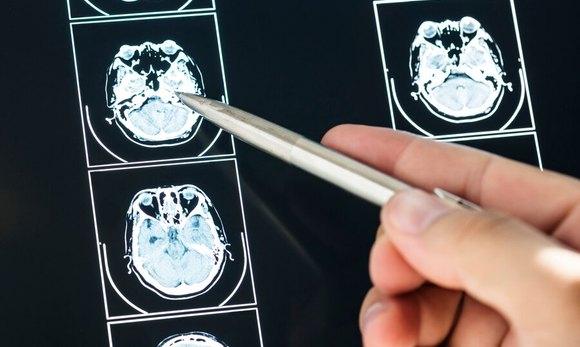
What You Should Know About Neurology and Nerve Conduction
Neurology and nerve conduction are vital aspects of human health, influencing various bodily functions and overall well-being. This article aims to provide comprehensive insights into neurology, nerve conduction, and related services in Sydney, emphasising the importance of seeking professional help and understanding available resources.
Understanding the Nervous System
The nervous system comprises the Central Nervous System (CNS), consisting of the brain and spinal cord, and the Peripheral Nervous System (PNS), which includes all other nerves in the body. It controls voluntary and involuntary actions and plays a crucial role in sensory perception and communication.
What is Neurology?
Neurology is the medical specialty focused on diagnosing and treating disorders of the nervous system. These disorders range from common conditions like headaches and migraines to more severe diseases such as Parkinson’s, Alzheimer’s, and epilepsy. Neurologists specialise in assessing and managing these conditions.
Basics of Nerve Conduction
Nerve conduction is the process by which nerve cells communicate with each other to transmit signals throughout the body. This process involves the propagation of electrical impulses along nerve fibres, facilitating sensations, movements, and other physiological responses.
Common Conditions Related to Neurology
– Stroke
Stroke occurs when there is a disruption in the blood supply to the brain, leading to brain cell damage. It can result from a blockage in the blood vessels (ischemic stroke) or bleeding in the brain (hemorrhagic stroke). Symptoms include sudden weakness or numbness on one side of the body, difficulty speaking or understanding speech, and severe headache. Immediate medical attention is crucial to minimise brain damage and improve recovery.
– Multiple Sclerosis (MS)
Multiple sclerosis is an autoimmune disease that affects the central nervous system, including the brain and spinal cord. It occurs when the immune system mistakenly attacks the protective myelin sheath surrounding nerve fibres, causing inflammation and damage. Symptoms of MS can vary greatly and may include fatigue, muscle weakness, vision problems, and difficulties with coordination and balance. Treatment focuses on managing symptoms, slowing disease progression, and improving quality of life through medications, physical therapy, and lifestyle changes. Early diagnosis and intervention are essential to prevent long-term disability.
Each of these neurological conditions requires specialised care and management tailored to the individual’s needs. Early diagnosis, prompt treatment, and ongoing support are vital for optimising outcomes and enhancing quality of life for affected individuals.
Diagnosis and Treatment Options
Diagnosing neurological disorders typically involves a comprehensive evaluation, including medical history, physical examinations, and diagnostic tests such as MRI scans and nerve conduction studies. Treatment may include medications, therapies, and lifestyle modifications tailored to individual needs.
Nerve Conduction Test in Sydney
In Sydney, nerve conduction tests play a significant role in diagnosing and monitoring neurological conditions. These tests assess the function of nerves and muscles, helping neurologists evaluate nerve damage, neuropathies, and other related issues.
Sydney Neurology Specialists
Finding the right neurologist in Sydney is essential for receiving specialised care and expertise. These specialists offer a range of services, including diagnostic evaluations, treatment planning, and ongoing management of neurological conditions to improve patients’ health and well-being.
Advances in Neurology and Nerve Conduction Studies
Ongoing research in neurology continues to advance our understanding of the nervous system and its disorders. Breakthroughs in areas such as neuroplasticity and genetic research offer new insights into disease mechanisms and potential treatment approaches.
Importance of Seeking Professional Help
If you experience symptoms like persistent headaches, numbness, weakness, or difficulty speaking, seeking prompt medical attention from a neurology specialist is crucial. Early detection and intervention can help prevent complications and improve outcomes for neurological conditions.
Lifestyle Factors Affecting Nerve Health
In addition to medical treatment, adopting a healthy lifestyle can support optimal nerve function. Nutritious diet choices, regular exercise, stress management techniques, and adequate sleep all contribute to overall nerve health and well-being.
Tips for Maintaining Healthy Nerve Function
Incorporating simple habits into daily life, such as staying hydrated, practising relaxation techniques, and getting regular exercise, can help maintain healthy nerve function and prevent neurological issues.
Impact of Technology on Neurology
Technological advancements, including telemedicine and wearable devices, have transformed the field of neurology, improving access to care and enabling more personalised treatment approaches for patients in Sydney and beyond.
Common Misconceptions About Neurology
Despite scientific progress, misconceptions about neurology persist, including beliefs in “brain health” supplements and alternative therapies as standalone treatments. It’s essential to rely on evidence-based medical care for neurological conditions.
Resources for Further Information
For those seeking reliable information about neurology and nerve health, reputable websites and organisations provide valuable resources and support. Resources in Sydney include specialist clinics, research institutions, and patient advocacy groups.
Sydney Unleashed is one of Australia’s premier entertainment publications exploring the latest in lifestyle trends. From Sydney’s finest restaurants, cafes and bars to the hottest in gadgets, products, and home entertainment, Sydney Unleashed is your one-stop lifestyle platform.
